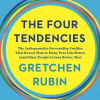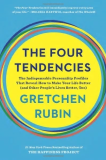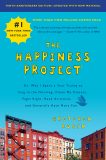One challenge of this time? While everyone’s safe at home, in many families, parents must oversee their children’s schoolwork—in ways that are unfamiliar to everyone.
I’ve heard from many people about how they’re seeing my “Four Tendencies” personality framework in their dealings with their children. And whether we’re dealing with children or adults, when we know someone’s Tendency, we can make arguments that are more persuasive, set up systems that are more effective, and save ourselves a lot of frustration.
If you need a quick overview of the Four Tendencies:
In a nutshell, my framework distinguishes how people tend to respond to expectations: outer expectations (a deadline, a request from a friend) and inner expectations (write a novel in your free time, keep a New Year’s resolution).
- Upholders respond readily to outer and inner expectations. Motto: “Discipline is my freedom.”
- Questioners question all expectations; they’ll meet an expectation if they think it makes sense–essentially, they make all expectations into inner expectations. Motto: “I’ll comply if you convince me why.”
- Obligers meet outer expectations, but struggle to meet expectations they impose on themselves; to meet inner expectations, they must have systems of outer accountability. Motto: “You can count on me, and I’m counting on you to count on me.”
- Rebels resist all expectations, outer and inner alike; they want to do what they want to do; they don’t even like to tell themselves what to do. Motto: “You can’t make me, and neither can I.”
To take the free, quick Quiz to determine your Tendency, go here. More than 2.8 million people have taken it.
From my observation, our Tendency is a hard-wired part of our nature. It’s not a product of upbringing, generation, birth order, nationality—it’s part of our inborn nature. It’s shaped by time, experience, and culture, but it’s there from the beginning.
For that reason, it’s often possible to spot children’s Tendencies from a very young age. It’s not always possible, because children aren’t autonomous the way adults are, but very often it’s easy to identify.
And when we know a child’s Tendency, we can tailor our approach for maximum effectiveness, and avoid an approach that will yield frustration or procrastination.
These days, for many of us, it’s especially valuable to know how to work more effectively with children, because we’re spending a lot of time with our children. Adults are working from home, children are doing schoolwork at home, parents are acting as teachers, coaches, and taskmasters, while also getting the laundry done. It’s not easy.
The Four Tendencies framework can help.
If you have an Upholder child:
- They’re self-directed, so they can meet deadlines, join a remote-learning class, or feed their fish, without much supervision.
- They’re eager to meet expectations and may become very uneasy when it’s not clear what’s expected—e.g., when an assignment is unclear or when they’re having trouble using a new technology.
- They embrace routine, so they may feel very anxious about all the upheaval in their usual daily routines.
- To others, they can seem uptight or rigid, so might find it especially hard to adapt if their days feel chaotic, unstructured, or unpredictable.
- “Your teacher will understand if you explain that you were ready to join the remote-learning class, but couldn’t join because I had a work emergency and needed to use the computer.”
- “I’ve talked to other parents, and I’ve heard that many children are also having trouble using that platform. The teacher will help everyone figure out how to do it.”
- “Let’s make a schedule for the day. Why don’t you write the times for class, homework, exercise, free time, meals, TV, chores, and whatever else you think should go on it?”
- “I think we should just eat lunch whenever we get hungry, but you want us to eat at a particular time. Okay, let’s say 12:30.”
If you have a Questioner child:
- They put a high value on reason, research, information, and efficiency.
- They follow an “authority” only if they trust his or her expertise.
- Their persistent questioning may cause teachers, professors, or parents to view them as uncooperative or disrespectful—if someone is told “You ask too many questions,” that’s a strong clue that the person is a Questioner.
- They often refuse to do anything that seems pointless or arbitrary—“Why should I bother to do this dumb worksheet? It’s not teaching me anything.”
- They tend to like to customize and monitor.
- Parents, teachers, and professors should ensure that Questioners get the robust explanations they need to meet expectations—not “Because I say so” or “Sixth graders always do this assignment.”
- “It may seem like a waste of time to write a book report when your teacher knows you read the book, but this is an effective exercise to learn about how to summarize information, convey your thoughts clearly and convincingly, and identify the most important elements of what you read. Those skills will serve you well in many contexts.”
- “You make an interesting point about why this assignment doesn’t make sense. Can you think of any reasons why it does make sense?”
- “You may feel like you’re not learning much, so these video chats are a waste of your time. As everyone gets more accustomed to doing school this way, it will get more efficient. See if you can identify ways to make it work better.”
- “You have a lot of lessons to review and work to do. What do you think would be the most efficient way for you to tackle these tasks?”
- “You told me that studying for a test is the way you learn material most thoroughly. Doing this assignment now will help you study when it’s time for the test.”
If you have an Obliger child:
- They require supervision, deadlines, monitoring, and other forms of accountability; many small deadlines may work better than one big distant deadline.
- They must have systems of external accountability, perhaps multiple systems of accountability, in order to meet inner expectations.
- Parents, teachers, and professors should ensure that work is distributed fairly—for instance, that for a group project, Obligers aren’t being exploited by others.
- “Your teacher assigned The Giver to read? I’ll read it, too, and you and I can talk about it.”
- “I have my office work, and you have your school work. Let’s both do our work at the dining room table, at the same time, each day.”
- “You may think your teacher won’t be able to tell if you’ve prepared, but believe me, a teacher can tell right away who’s faking it.”
- “Let’s make a checklist of the things that you need to get done today.”
- You might find online tools that can help create accountability—one Obliger suggested Focusmate.
If you have a Rebel child:
- They put a high value on freedom, choice, and self-expression; they can do anything they want to do, and they don’t want to feel controlled.
- If someone asks or tells them to do something, they’re likely to resist.
- They resist supervision, advice, nagging, or reminders; when you remind Rebels to do a task, you’re very likely making it less likely that they will do it.
- They may act as though ordinary rules don’t apply to them; for instance, they may complete an assignment in their own way.
- They resist routines, schedules, repetitive tasks, and being committed to do a particular thing at a particular time.
- To inspire a Rebel to act, it’s often most effective to appeal to their identity, or to use information-consequence-choice. As painful as it may be to watch, it’s crucial that Rebel children be allowed to experience the negative consequences of their bad choices.
- “Sometime before dinner, spend three hours on schoolwork. You decide what you want to work on, when, where, and how.”
- “For reading time, pick whatever book you feel like reading.”
- “Wow, writing a short story sounds like a challenging assignment! I can’t wait to read what you write. You have such a brilliant imagination.”
- “You’ve always loved math. This stupid virus isn’t going to stop you from learning.”
- “You want to work on your senior paper at 11:00 p.m.? Okay.”
- [Silence. Often the most effective strategy with Rebels is to say nothing. Let them do things their own way, stay out of it! Easier said than done.]
Some general notes:
During this stressful time, pick your battles. If your Questioner child asks, “Why should I make my bed every morning, if I just unmake it every night,” you might answer, “Fine, don’t make it.”
If you have more than one child, be fair. Many parents comment that it’s easy to fall into the habit of loading chores and tasks onto Obliger or Upholder children, who tend to more cooperative, and not asking Rebel or Questioner children to do as much; with Rebels and Questioners, we’re much more likely to face arguments, resistance, or refusal. But that’s not fair. Nevertheless…
Fairness doesn’t require that we treat all children the same way. An Obliger child might thrive when given supervision and deadlines. A Rebel child might thrive when given autonomy and flexibility. You might let an Upholder child look after himself or herself without much oversight. A Questioner child might need you to make sure that he or she hasn’t decided that certain assignments were optional.
Want more parenting resources?
Want more to read more about the Four Tendencies?
- A mother’s brilliant strategy for dealing with a Rebel pre-schooler.
- Are you annoying? (I know I am.) How understanding a Tendency can help.
Want to listen to a discussion of the Four Tendencies on the Happier with Gretchen Rubin podcast?
—–
Right now, we’re in the midst of the COVID-19 crisis, and it will continue and change for a long time. While everyone across the globe is affected, it’s hitting people differently in different places. Countries are experiencing it at different times, and within the United States, states are being hit at different times. The crisis affects individuals very differently, too; people’s fears and challenges vary dramatically. Wherever we are, we’re all so grateful for the healthcare workers and all the essential workers who are doing such important work, so courageously, during this time.
I’m writing from my own experience, at this moment, in New York City.



































